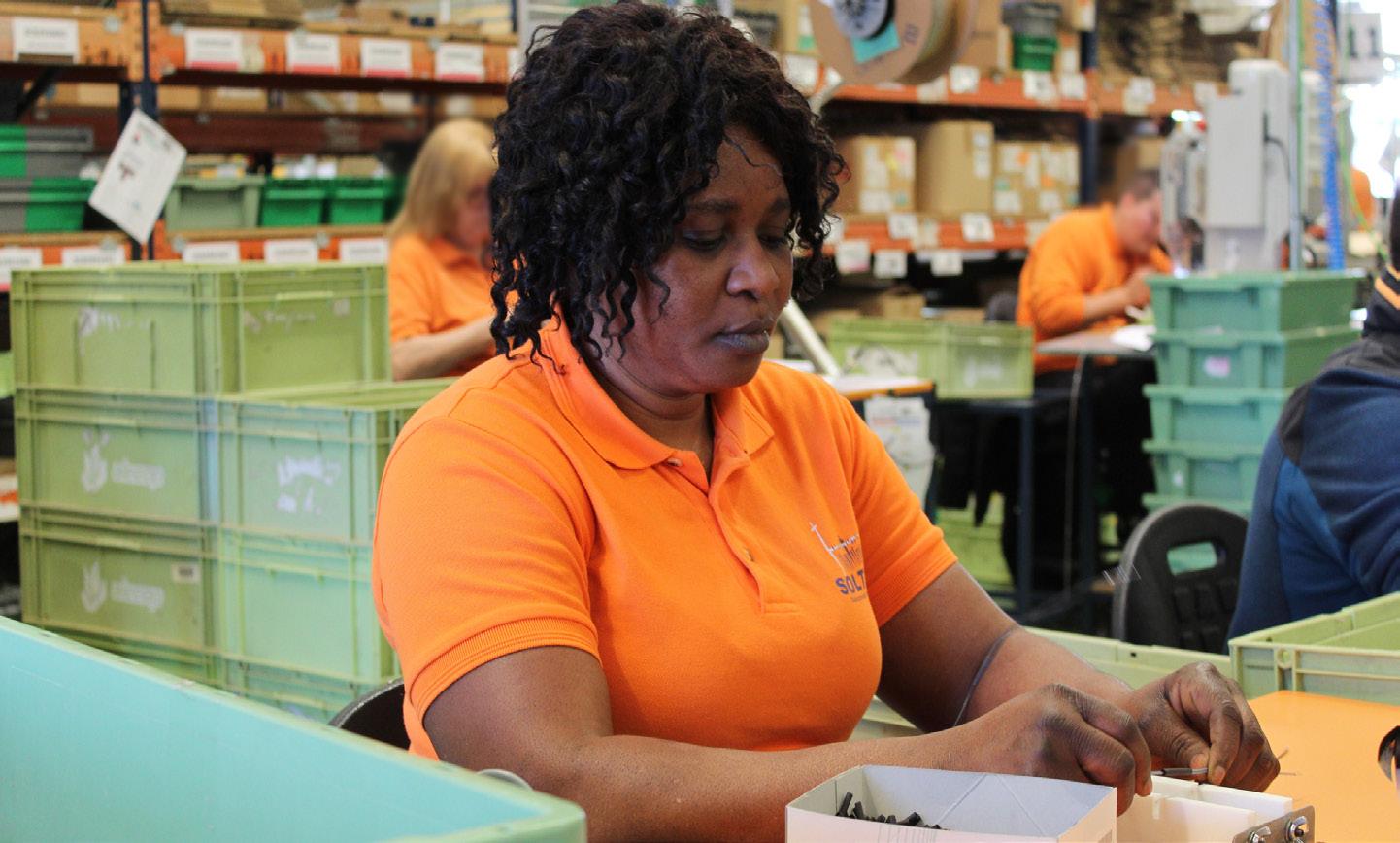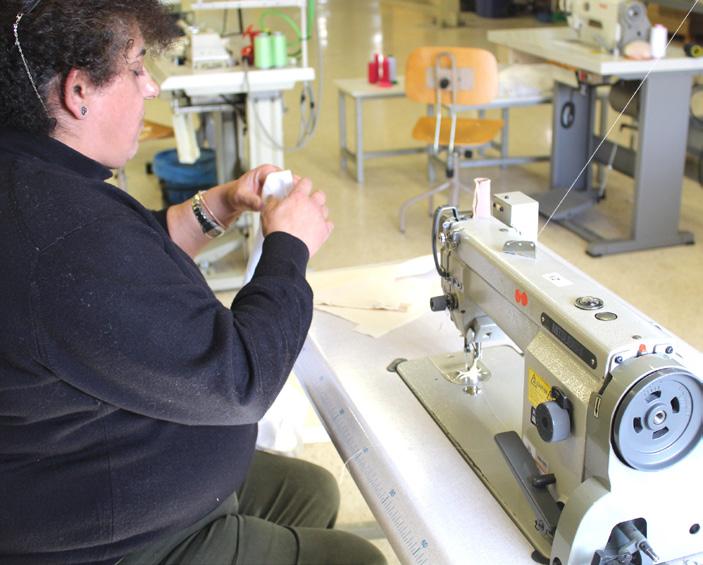
4 minute read
Successfully complete the Basic Techniques of Cutting, Assembly and Finishing of Textile Products Course
We have concluded the first edition of this training for employment project aimed at people interested in the fashion and clothing sector.
This course has been carried out thanks to the support of the ONCE Foundation, INSERTA and the European Social Fund through the Youth Employment Operational Programme. The aim is to provide students with the professional skills that will enable them to perform competitively in the labour market and to develop personal skills and abilities in order to achieve full participation in their working and social environment.
Advertisement

In this edition, 14 people have participated, who have received over 3 weeks basic knowledge of pattern making, cutting, assembly and finishing of textile products through an eminently practical approach.
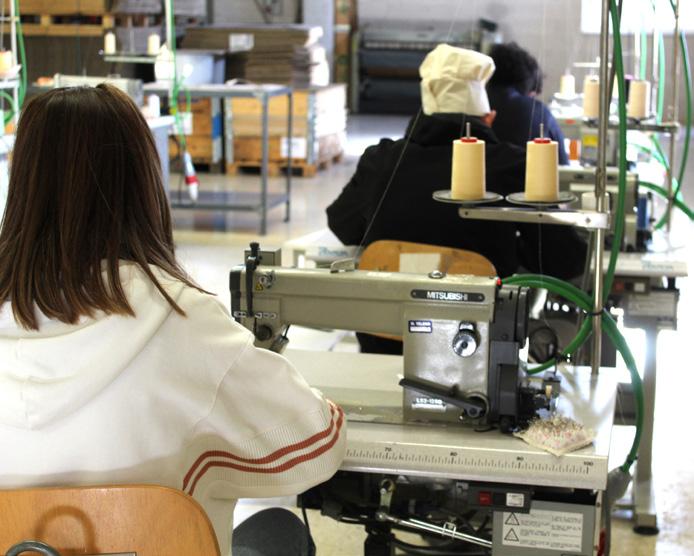
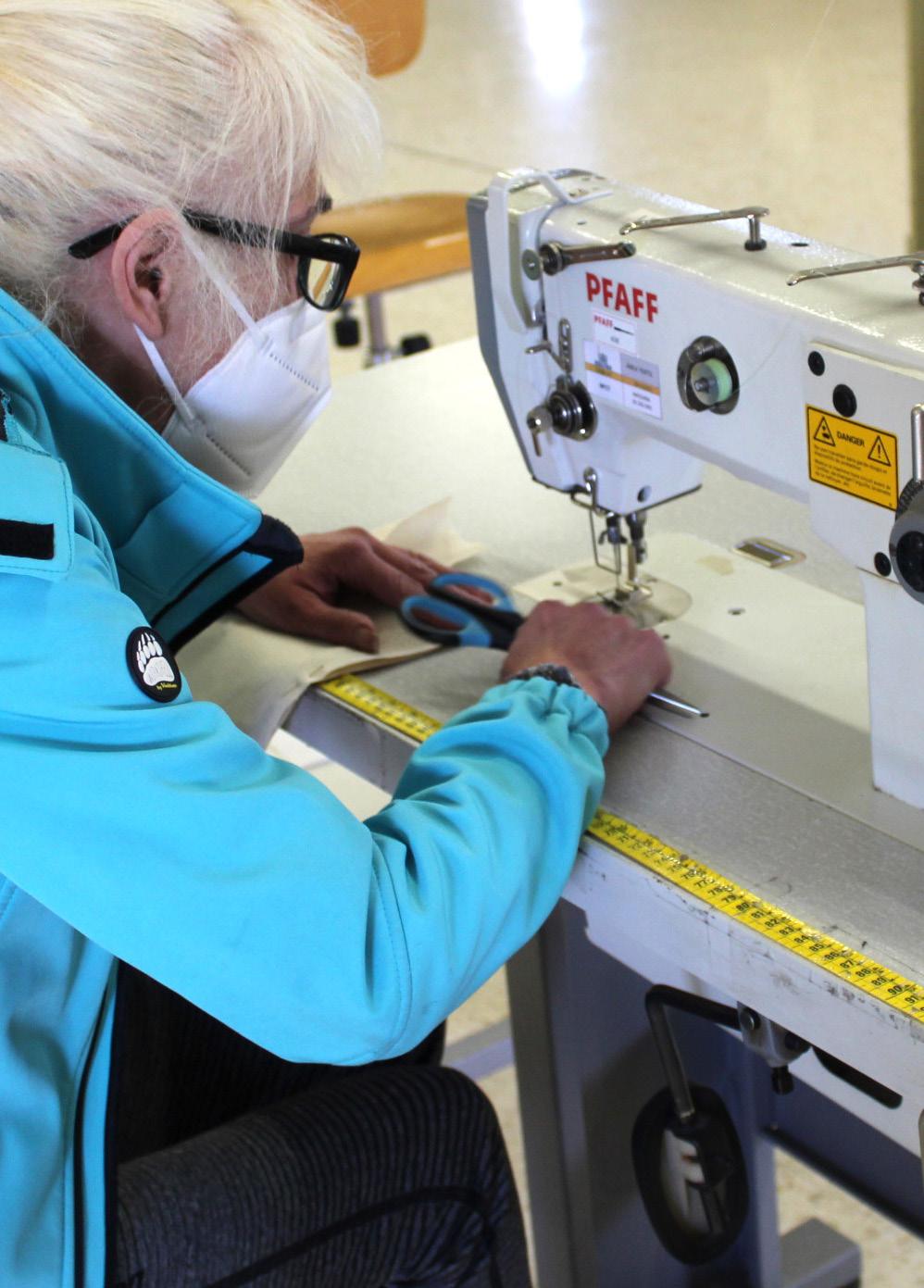
A methodology based on the principles of active participation, personal research, acquisition of manual skills in the execution of the techniques taught, collaborative learning, clarity of exposition and experimentation.
A great learning experience that encourages us to think about the next edition.
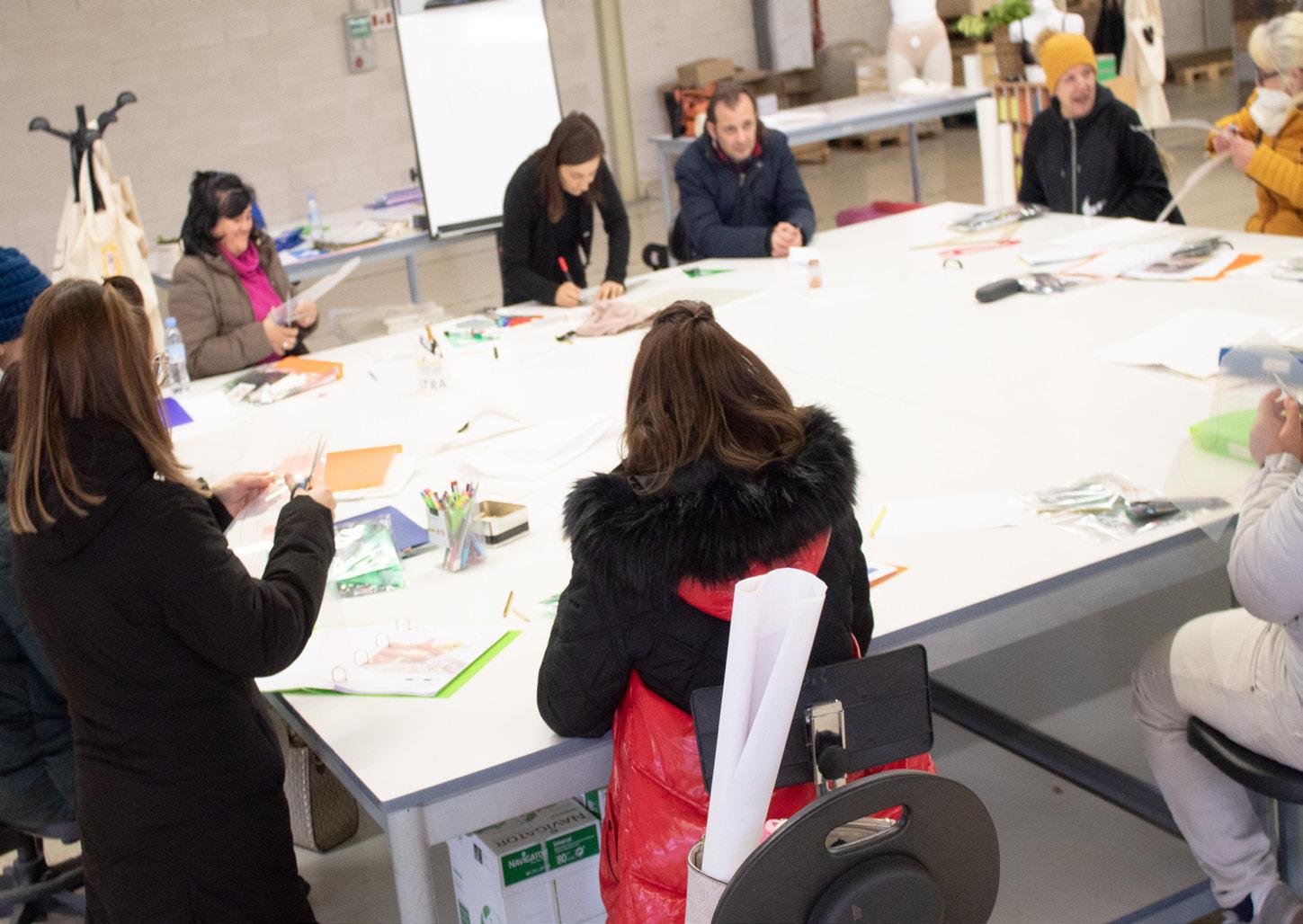
Esther Pernía: the story of a very special journey
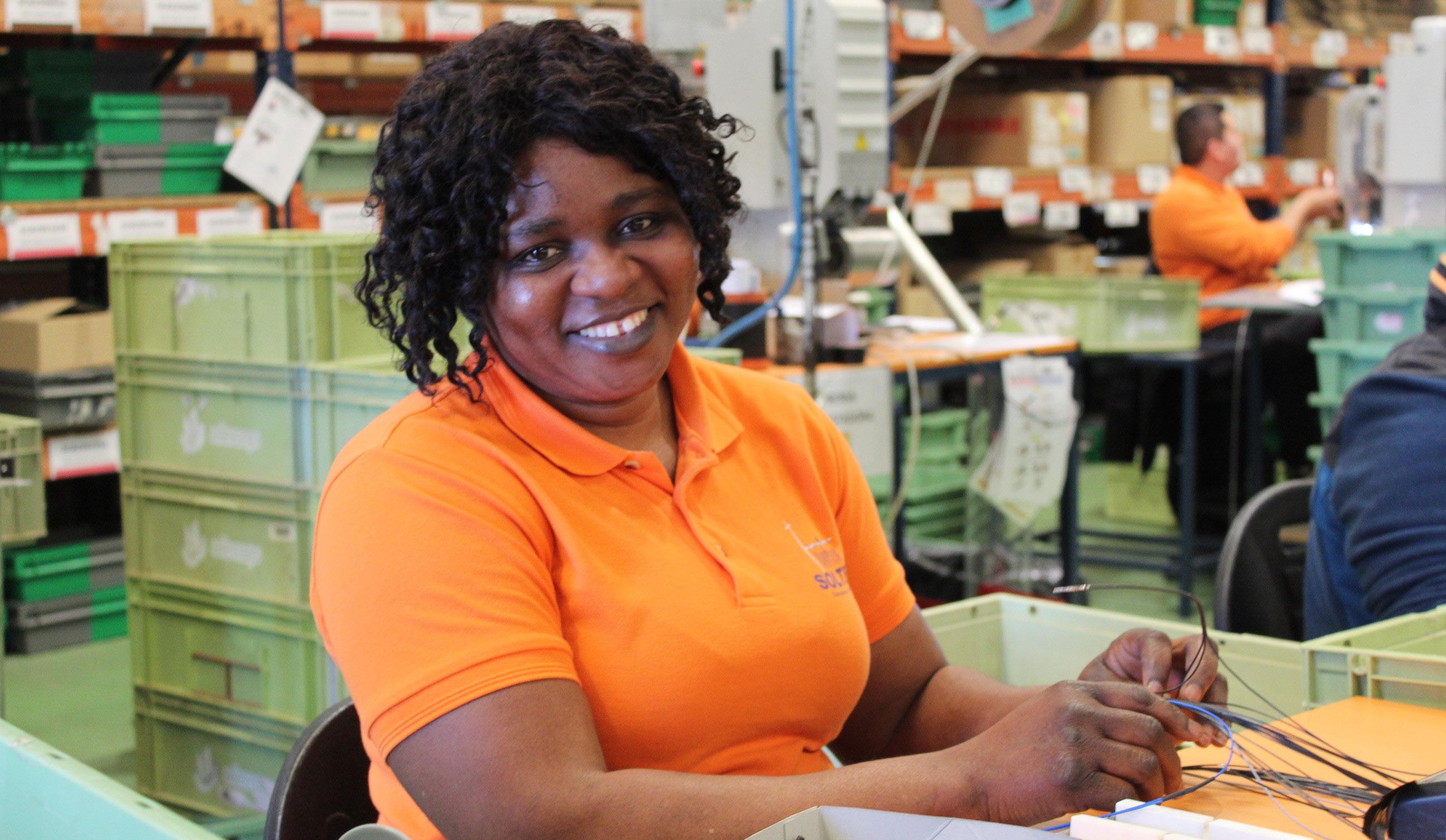
Esther is originally from Haiti, a country plagued by poverty, whose situation worsened after the devastating earthquake of 2010, one of the worst natural disasters in history. There is a popular Haitian Creole phrase that says, “Kouri pou lapli, tonbe nan larivyè,” which translates to “running from the rain only to fall into the river.” It’s a quote that defines the cursed situation of this country.
Orphaned at a very young age, her life was surrounded by tragedy, and she has had to fight to survive since childhood. But the most surprising thing about meeting Esther is the smile with which she greets you, a smile that she never loses despite all the difficulties she has faced.
How long ago did you leave your country?
When I was around twenty years old, I made the decision to leave Haiti and head to neighboring Dominican Republic. However, when I was at the border, someone offered me a work contract in Switzerland, and I didn’t think twice about it. Unfortunately, when I arrived there, things were not as I had been told, and the situation was not very pleasant. One day, an acquaintance offered me her home in Madrid, and that’s how I ended up in Spain.
How was your first contact with our country?
I arrived in Spain with a lot of hope to find a better future, and after a short stay in Ma- drid, I came to León. The problem we Haitians face in Spain is the lack of agreements between countries, which makes it very difficult for us to obtain legal papers. On November 29, 2018, I had a serious accident on a bus that turned my life around. Everything became complicated. After a long stay in the hospital, the damage to my leg made it difficult for me to walk, and I had to rely on two crutches. All I could think about was how I would find a job in that situation. Most available jobs are in elderly care, and it was impossible for me to work taking care of someone in my condition. So, I began tirelessly searching for employment but with little hope. My biggest fear was losing my papers and being deported back to Haiti.
How did you come to know SOLTRA?
It was through Inmaculada from Inserta. I had submitted my resume to their offices in the Europa Building, and she told me about SOLTRA. She said they would forward my information to them. After a few days, they contacted me to schedule an interview and told me about the Personalized Itineraries program. They explained that it was a completely free project that helped people with disabilities improve their employability through various theoretical and practical actions.
How was your experience in the Itineraries Program?
From the very beginning, I felt warmly welcomed. The initial interview with the educators filled me with hope, and it felt as if a window was opening in my life. Every morning, I attended different training sessions they provided. The itinerary is personalized and tailored to each person’s needs. It helped me tremendously. They teach you how to improve your social skills and prepare you in various techniques and tools for job searching. They offer different trainings: cleaning, gardening, laundry, and wiring. Due to my personal situation, the most suitable one for me was the wiring training. I attended the cable assembly training from late 2020 to June 2021. During those months, I also met lovely people who helped me a lot, and going to the itinerary training every day filled me with joy and hope for a better future.
Thanks to that, in July of that year, I started working at the re- ception of a residence. When I finished there, a few days later, SOLTRA called me to work in the automotive sector, and since then, I have been there, very happy and content, and eager to stay in this job forever.
What is your daily routine like?
In the mornings, I come to work at SOLTRA. I’m in the automotive section. Due to my severe mobility issues, they have found a position that suits my needs. Currently, I’m dedicated to cable crimping tasks, although I have previously worked in similar positions such as taping, subassemblies, and burning.
In the afternoons, I attend Spanish classes. Unfortunately, when I was young, I didn’t have the opportunity to study, and now I want to make the most of all the opportunities available for education in Spain.
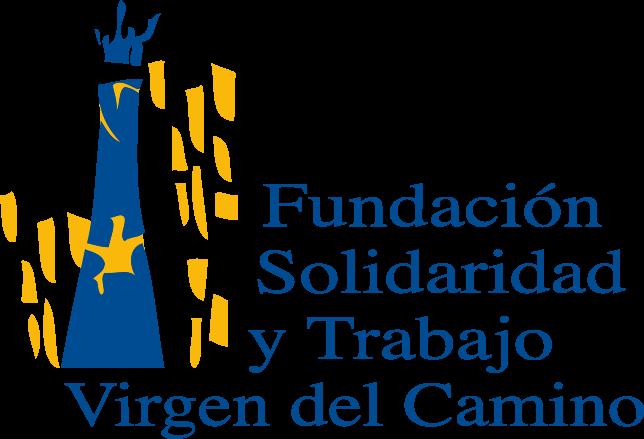
What are your plans for the future?
For me, the most important thing is to be able to continue working at SOLTRA. Due to my disability, it is very difficult for me to find a job, and without a job, I wouldn’t be able to stay in Spain as I would lose my residence permit. That is my greatest fear. I wish other countries had something like SOLTRA... there are places where the only help available for people with disabilities is their family, and if they don’t have one, there is absolutely nothing. I can only express my gratitude to Spain and SOLTRA. to seize it.”
